Lemon trees are one of the most popular and rewarding fruit-bearing plants to grow, both in home gardens and commercial orchards. Known for their fragrant blossoms, glossy leaves, and bright, tangy fruits, lemon trees offer aesthetic beauty and practical benefits alike. However, one question that often arises among gardeners and citrus enthusiasts is:
“How old should a lemon tree be to bear fruit?”
The age at which a lemon tree begins producing fruit depends on several factors, including the tree’s variety, growing conditions, and whether it was propagated by seed or grafting. In this comprehensive article, we’ll explore the typical fruiting age of lemon trees, factors affecting fruit production, care tips to encourage earlier yields, and common mistakes to avoid.
The Natural Fruit-Bearing Age of Lemon Trees
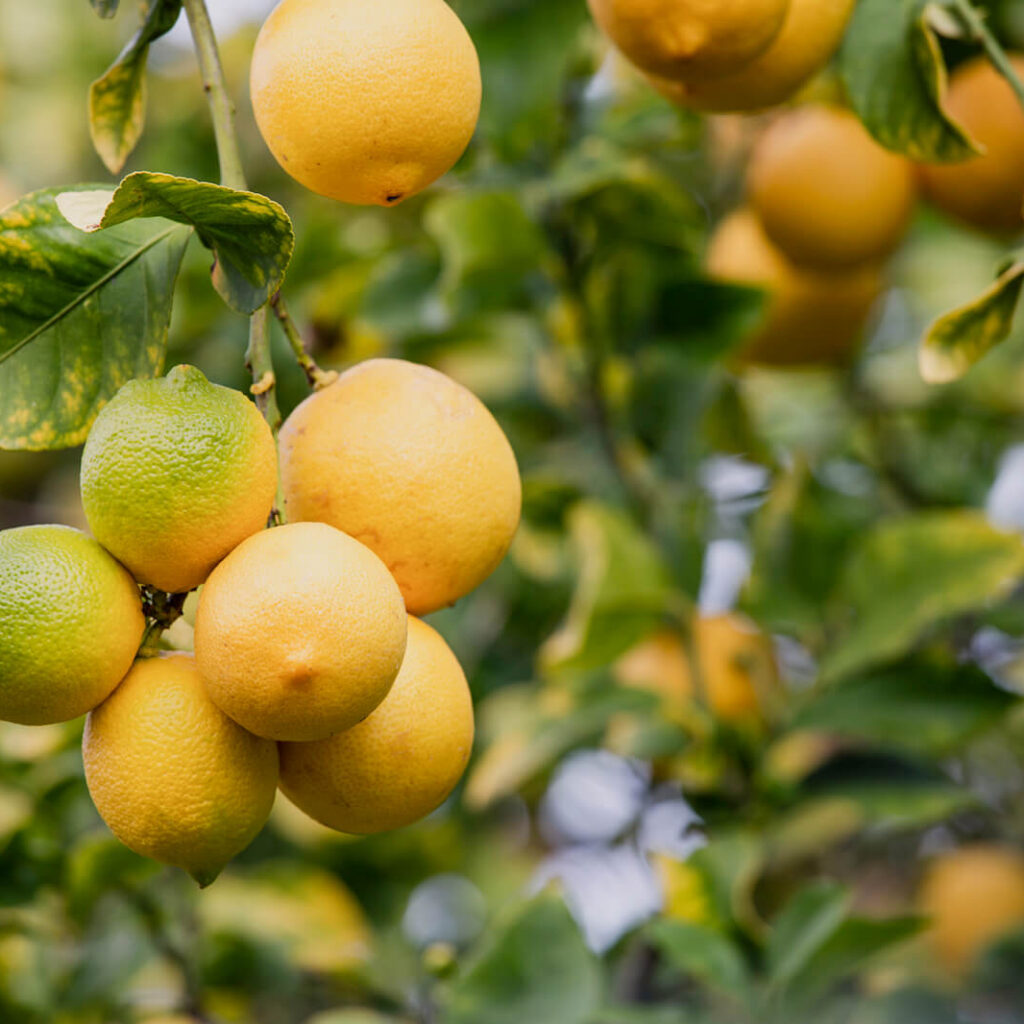
Lemon trees, like all fruiting plants, need time to mature before they can produce reliable crops. Generally:
- Grafted lemon trees (those propagated by grafting a desired variety onto hardy rootstock) typically begin bearing fruit between 2 to 5 years old.
- Seed-grown lemon trees often take much longer, usually 5 to 15 years, to reach maturity and produce fruit.
This considerable difference is why most home gardeners and commercial growers prefer purchasing grafted nursery-grown lemon trees. These are already a few years old when sold and are specifically bred for faster, more reliable fruiting.
Average Fruiting Timeline by Tree Type
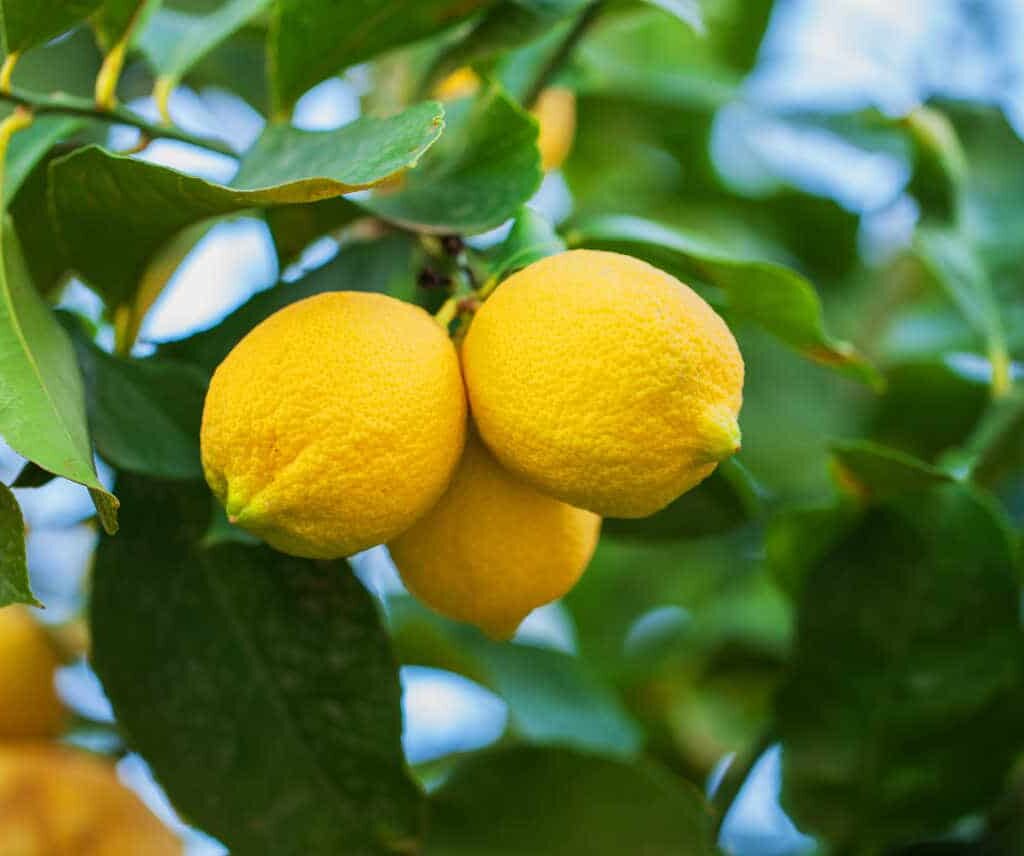
| Type of Lemon Tree | Time to First Fruit | Notes |
|---|---|---|
| Grafted Lemon Tree | 2–5 years | Most reliable, sold by nurseries |
| Seed-Grown Lemon Tree | 5–15 years | Unpredictable, longer to mature |
| Dwarf Lemon Tree | 2–3 years | Ideal for containers and small spaces |
Note: Even after first fruiting, lemon trees typically reach peak fruit production around 7–10 years old.
Popular Lemon Varieties and Their Fruiting Age
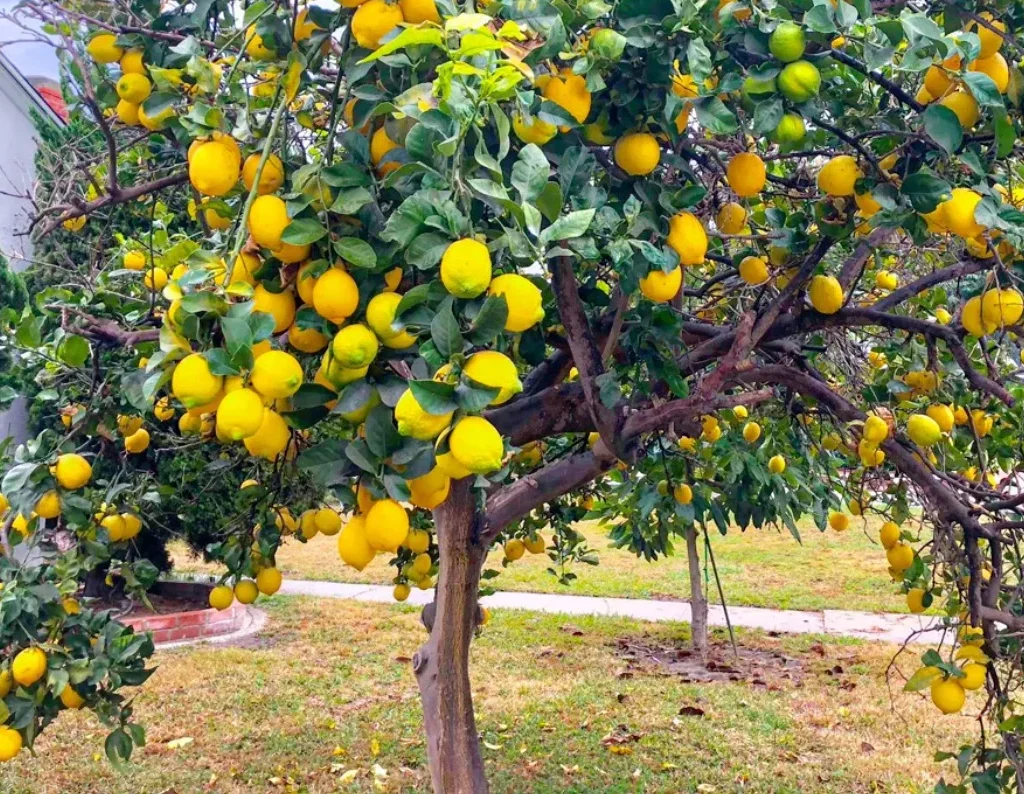
Different lemon varieties have slightly different growth habits and fruiting timelines:
- Eureka Lemon: Common in supermarkets; fruits within 3–5 years (grafted)
- Lisbon Lemon: Hardy and prolific; fruits within 3–5 years
- Meyer Lemon: Popular dwarf variety for home growers; fruits in 2–3 years (grafted)
- Ponderosa Lemon: Large fruiting type; fruits in 4–6 years
When purchasing a lemon tree, ask about its age and whether it’s grafted for a clearer expectation of when it will bear fruit.
Factors That Influence When a Lemon Tree Bears Fruit

Several conditions directly affect how soon and how successfully your lemon tree produces fruit:
1. Propagation Method
As mentioned, grafted trees fruit earlier than seed-grown trees because they inherit maturity traits from the grafted scion (fruit-bearing branch).
2. Growing Conditions
Lemon trees need consistent warmth, sunlight, and moisture to develop properly.
- Light: At least 6–8 hours of direct sunlight daily.
- Temperature: Ideal range of 60°F to 85°F (16°C–29°C).
- Soil: Well-draining, slightly acidic soil (pH 5.5–6.5).
Poor growing conditions can significantly delay fruiting.
3. Climate
Lemons are subtropical plants and thrive in USDA Hardiness Zones 9–11. In cooler climates, they may need to be grown in containers and moved indoors during winter, which can slightly slow growth and fruiting rates.
4. Care and Maintenance
Proper watering, fertilizing, pruning, and pest management all contribute to healthy, early-bearing lemon trees.
How to Encourage a Lemon Tree to Bear Fruit Earlier
If you want to improve the odds of getting fruit sooner, follow these essential care guidelines:
1. Choose a Grafted Tree
Start with a healthy, grafted lemon tree from a reputable nursery. It’s the most reliable way to ensure early fruiting.
2. Provide Full Sunlight
Place your lemon tree in a sunny, sheltered spot with at least 6–8 hours of direct sunlight daily.
3. Use Well-Draining, Nutrient-Rich Soil
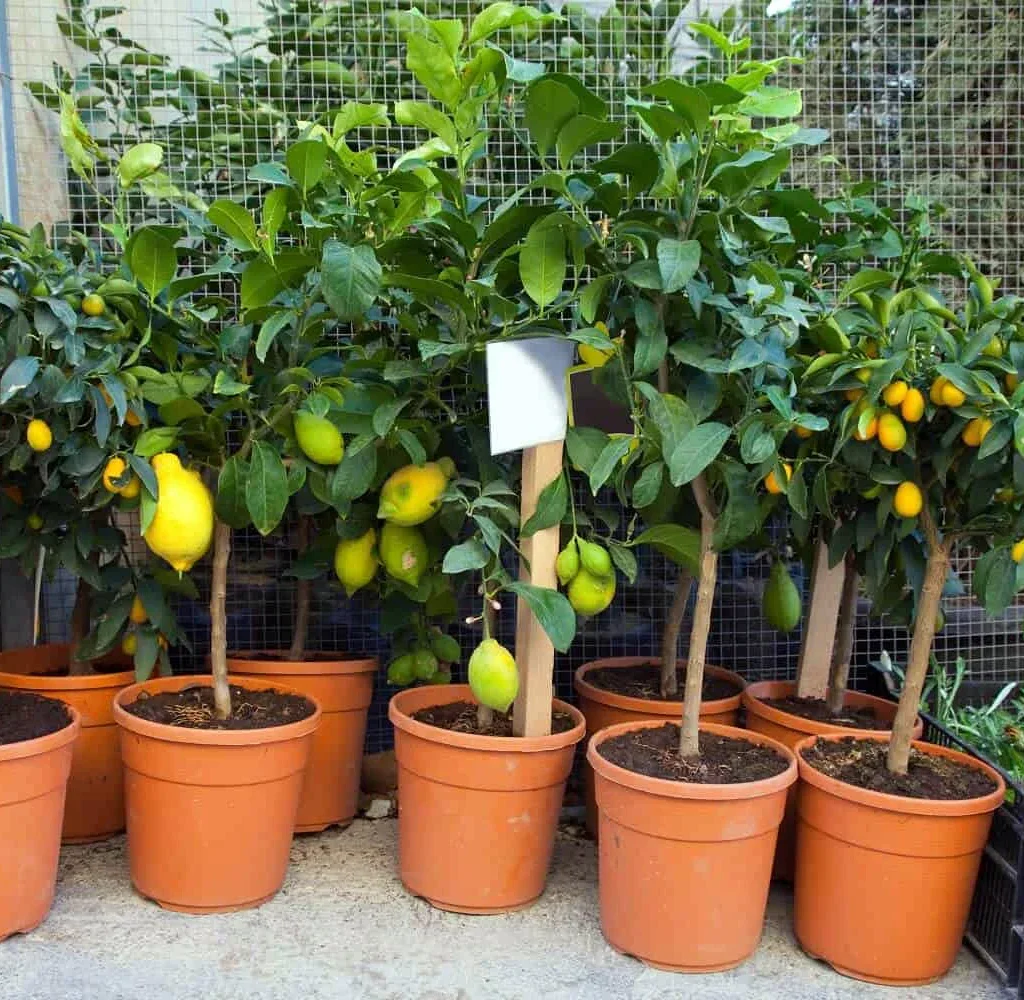
Amend your soil with compost or organic matter to improve drainage and fertility. Lemons dislike waterlogged roots.
4. Fertilize Regularly
Feed your lemon tree with a citrus-specific fertilizer high in nitrogen and balanced with micronutrients like magnesium, iron, and zinc.
Fertilizing schedule:
- Every 4–6 weeks during the growing season (spring to fall).
- Reduce feeding during winter dormancy.
5. Prune Wisely
Remove dead, crossing, or weak branches to encourage air circulation and direct energy toward productive growth. Avoid excessive pruning, which can delay fruiting.
6. Control Pests and Diseases
Aphids, scale insects, and fungal issues can weaken young trees and delay fruit production. Regularly inspect leaves and stems, and treat problems promptly with neem oil or horticultural soap.
The Importance of Pollination
While many lemon trees are self-pollinating, especially in outdoor conditions where bees and other pollinators assist, indoor or isolated trees may benefit from hand pollination to encourage fruit set.
To hand pollinate:
- Use a small brush or cotton swab.
- Gently transfer pollen from one flower’s stamen to the pistil of another.
This simple step can increase yields, especially in potted or indoor lemon trees.
Common Reasons Lemon Trees Delay Fruiting
If your lemon tree seems healthy but hasn’t fruited within the expected timeframe, consider these possible reasons:
| Cause | Solution |
|---|---|
| Insufficient sunlight | Move to a sunnier location |
| Inadequate fertilization | Apply citrus-specific fertilizer regularly |
| Overwatering or poor drainage | Improve soil drainage, reduce watering |
| Lack of pollination (indoor trees) | Hand-pollinate blossoms |
| Tree is too young or seed-grown | Wait patiently; seed-grown trees need time |
| Excessive nitrogen fertilizer | Use balanced fertilizer to prevent excess leafy growth |
Conclusion
So, how old should a lemon tree be to bear fruit?
- Grafted lemon trees typically begin fruiting at 2–5 years old, with dwarf varieties like Meyer lemons sometimes producing fruit as early as 2–3 years.
- Seed-grown lemon trees take much longer, often 5–15 years, and their fruiting habits can be unpredictable.
Several factors — including propagation method, climate, care, and growing conditions — influence when your lemon tree will bear its first fruit. By selecting a quality grafted tree, ensuring full sunlight, proper fertilizing, and attentive care, you can enjoy the sweet satisfaction of homegrown lemons much sooner.
Whether for culinary delights, refreshing drinks, or ornamental value, the wait is well worth it when those bright yellow fruits finally appear among glossy green leaves.
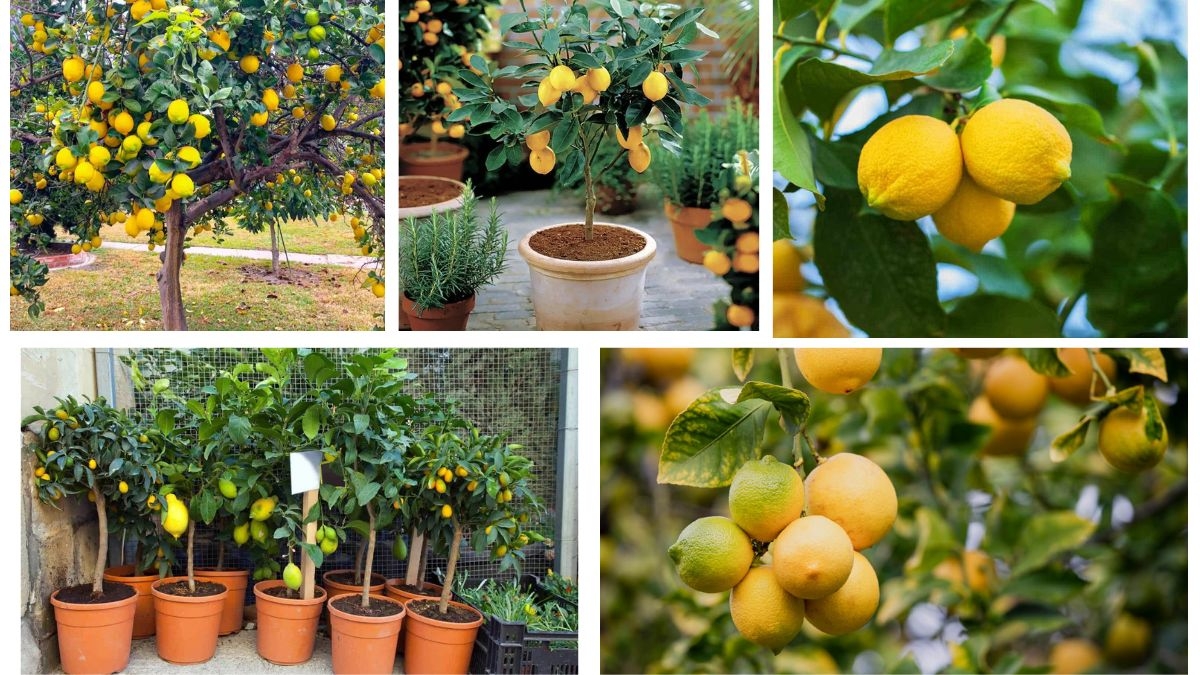



Leave A Comment